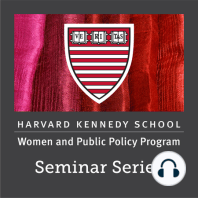72 min listen

The Mommy Effect: Do Women Anticipate the Employment Effects of Motherhood? with Jessica Pan
The Mommy Effect: Do Women Anticipate the Employment Effects of Motherhood? with Jessica Pan
ratings:
Length:
79 minutes
Released:
Jan 23, 2019
Format:
Podcast episode
Description
After decades of convergence, the gender gap in employment outcomes has recently plateaued in many wealthy countries, despite the fact that women have increased their investment in human capital over this period. In this seminar, Jessica Pan analyzes these two trends using an event-study framework with data from the U.S. and U.K. Her findings provide evidence that women in modern cohorts underestimate the impact of motherhood on their future contributions to the labor market. Upon becoming parents, women adopt more negative views toward female employment and report that parenthood is harder than they expected. Jessica also examines whether young women’s expectations about the future labor supply are correct when they make their key educational decisions. She finds that female high school seniors are increasingly and substantially overestimating the likelihood they will be in the labor market in their thirties, which is a sharp reversal from previous cohorts of women who substantially underestimated their future labor supply. Jessica concludes the seminar by specifying a model of women’s choice of educational investment to reconcile the expectations of motherhood across generations.
Jessica Pan, WAPPP Research Fellow; Associate Professor of Economics, National University of Singapore
Released:
Jan 23, 2019
Format:
Podcast episode
Titles in the series (93)
More Women Can Run with Kira Sanbonmatsu: Sanbonmatsu discusses her new book (coauthored with Susan J. Carroll), titled “More Women Can Run: Gender and Pathways to the State Legislatures,” (Oxford University Press, 2013). Analyzing nationwide surveys of state legislators conducted by the Center ... by Women and Public Policy Program Seminar Series